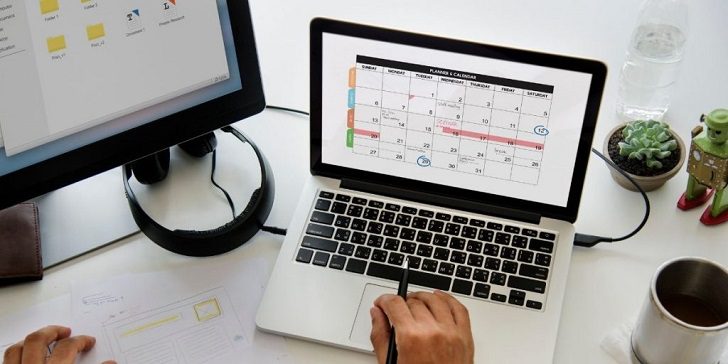
Basic Ways To Save Money On A Monthly Basis

According to statistics, most individuals spend more when they have more money. A person’s standard of life increases as their money grows. As a result, the ‘wants’ gradually change into ‘needs,’ and items that were once luxuries become necessities. This mentality presents a significant difficulty. You may continue ‘enjoying’ your life in the manner you choose, but you are also reducing your opportunity to accumulate riches. And living beyond one’s means is an invitation to significant financial difficulties.
Despite the importance of having savings, data indicates that 45 percent of Americans have less than $1,000 saved, which may not be adequate in an emergency. Setting aside a part of every paycheck is essential to guarantee you have sufficient funds to handle a worst-case situation.

Getty Images/ Jaybe | It is never too early to encourage long-term savings
Aside from providing for one’s financial stability, savings may also bring several other advantages. Increased savings would help you to pay off high-interest debt, such as credit cards, when interest rates increase. In light of the current unstable economic situation, financial experts advise getting out of debt as soon as possible.
To begin with, money helps you avoid incurring further debt to finance your first expenditures. It would also give you more opportunities to explore new things professionally and take more chances without as much concern for the potential financial repercussions. Here are a few basic ways to help you save money from your monthly income.
Saving for an emergency

Manuraj Jain/ Money Club | Wealth is the ability to experience life fully
The thought of making a profit excites younger individuals frequently. They desire to acquire items, such as a home and a car, based mostly on whimsy and not on any final purpose. They fail to make preparations for a credit catastrophe. Whether it’s a job loss, a medical emergency, or an unforeseen financial need from a family member, you should always be prepared.
So, once you’ve set aside funds for smaller, more immediate requirements, you should begin to develop an emergency fund. This must cover three to six months’ living expenses, debt payments, and monthly insurance premiums. This amount should be invested or deposited in a method that is accessible and unaffected by market fluctuations.
Make a monthly budget plan and track your finances.

Blog Post/ Stock Image | It takes as much energy to wish as it does to plan
To save money, you must track where your money goes and manage your spending. Create and adhere to a monthly budget by splitting your expenditures into major categories. Start by recording the monthly amount that is deposited into your account. Next, prepare a list of your costs and separate them into fixed and variable categories. This category might include rent, bills, basic food, and other fixed costs. You may put purchases that do not recur every month, such as dining out, vacations, etc., in the variable category.
Pay yourself first
This suggests you commit to saving money before spending it on unnecessary items. The money you use considerable effort to get should belong to you. Utilize a systematic investment plan (SIP) to save a small portion of your pay regularly, and invest in shares. It is the finest strategy for managing finances.
More in Finance
-
`
The Unique Tradition of the SAG Awards: No Hosts!
The Screen Actors Guild (SAG) Awards, a prestigious event in the entertainment industry, has a unique tradition that sets it apart...
March 9, 2024 -
`
Essential 2024 Startup Know-How for Women | Beginning Your Business Journey
Forget the tired trope of the lone wolf entrepreneur. Today, women are shattering glass ceilings and redefining what it means to...
February 27, 2024 -
`
Microsoft and OpenAI Sound Alarm Over AI Hacking
A recent joint study by Microsoft and OpenAI raises concerns as it unveils attempts by state-backed hacker groups to exploit AI...
February 25, 2024 -
`
Invest with Confidence: Identifying 5 Key Company Traits for Success
When investing hard-earned money in stocks, we all want the reassurance that comes from placing bets on reliable horses. But how...
February 15, 2024 -
`
Roger O’Donnell’s Heartfelt Message to Morrissey Amidst ‘Medical Supervision’
When news broke that Morrissey, the iconic frontman of The Smiths, was placed under “medical supervision for physical exhaustion,” the music...
February 10, 2024 -
`
Six Flags and Cedar Fair Merger: A Thrilling Venture Under DOJ Scrutiny
Picture this: two giants of the amusement park world, Six Flags Entertainment and Cedar Fair, coming together in a colossal merger,...
February 3, 2024 -
`
A Peek Inside NASA’s Latest Supersonic Aircraft, the X-59
In the annals of aviation, breaking the sound barrier has always been a loud affair. But NASA, in partnership with Lockheed...
January 22, 2024 -
`
The Easiest Personal Loans to Secure Your Financial Freedom in 2024
Embarking on a journey toward financial stability often requires a helping hand, and personal loans emerge as versatile allies in this...
January 21, 2024 -
`
Emily Atack Baby Joy: A Peek into Her Life with Boyfriend Dr. Alistair Garner
New beginnings and a tiny miracle: The year 2024 has kicked off with a beautiful surprise for fans of Emily Atack,...
January 10, 2024














You must be logged in to post a comment Login